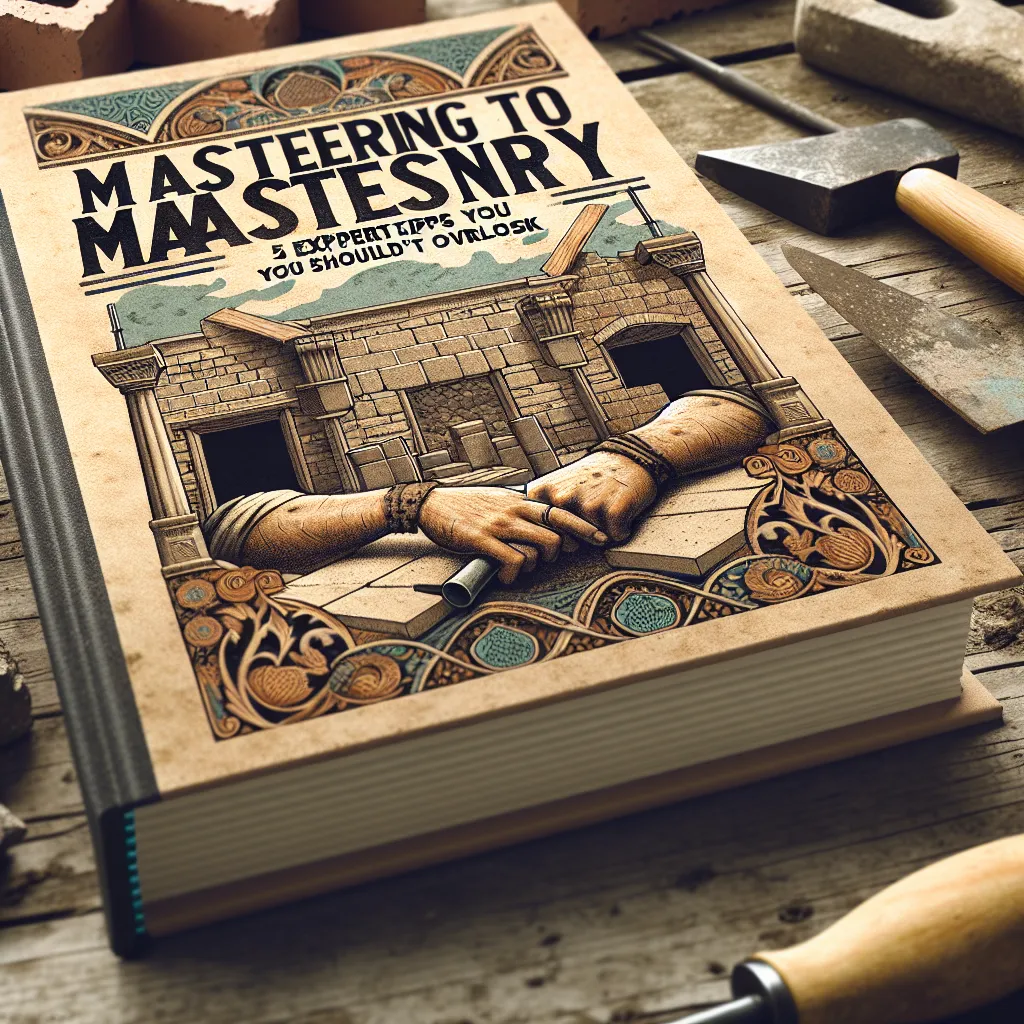1. Understand Your Materials
The first step in becoming proficient in masonry is to gain a thorough understanding of the materials you'll be working with. From bricks and blocks to different types of mortar and concrete, each material has its unique properties and applications. For instance, while clay bricks are ideal for outdoor structures due to their weather-resistant qualities, concrete blocks are cost-effective and provide excellent insulation.
2. Master the Art of Mixing Mortar
Mortar acts as the 'glue' in masonry, holding bricks and stones together. The key to a sturdy structure lies in the correct mixing of mortar. Too dry, and it won't stick properly; too wet, and it'll weaken the structure. Experts recommend a consistency similar to peanut butter for the best results.
3. Learn Proper Bricklaying Techniques
Bricklaying is an art that requires precision and patience. One crucial tip is to always start from the corners and work your way in. This helps ensure that the structure is straight and level. Don't forget to use a spirit level frequently to check your work.
4. Consider Weather Conditions
Weather plays a significant role in masonry work. Extreme temperatures can affect the curing process of mortar and concrete. For instance, during hot weather, the mortar may dry too quickly and crack, while freezing temperatures can cause it to expand and contract, leading to structural issues. It's best to work in moderate conditions and protect your work from the elements during the curing process.
5. Regular Maintenance is Key
Finally, even the best masonry work requires regular maintenance to stand the test of time. This includes periodic inspection for cracks or damage, cleaning to remove dirt or mold, and applying a sealant to protect against water damage.
Conclusion
Mastering masonry is a journey that requires constant learning and practice. These expert tips provide a solid foundation for both professionals and DIY enthusiasts looking to enhance their skills. Remember, the key to successful masonry lies in understanding your materials, perfecting your techniques, and maintaining your work. Happy building!
